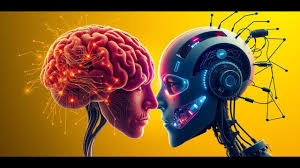Honolulu Cops Eyeing AI for Automated Reports

The Honolulu Police Department (HPD) is exploring the use of artificial intelligence (AI) to assist in writing police reports, a measure interim Chief Rade Vanic suggests could allow officers more time for patrolling their beats. This initiative, still in its nascent stages, might see a pilot program launched by the end of this year or by next spring. The department plans to utilize a product from Axon, their existing body camera vendor, which generates draft reports from audio transcripts and visuals captured by body cameras. Chief Vanic stressed that human input and review would remain essential, with officers still responsible for adding details like headings and ensuring accuracy.
The concept, while gaining traction in other police departments across the United States, is not without significant controversy. Critics, including the ACLU of Hawaiʻi, express deep reservations. Wookie Kim, legal director at the ACLU of Hawaiʻi, stated that AI technology is "too unreliable, untested, biased and also opaque," arguing it is not yet suitable for such a critical component of the criminal legal system as police reports. Christopher Magnus, a recently confirmed police commissioner with prior experience as a chief in mainland cities, urged Chief Vanic to seek public input before proceeding, acknowledging that "the use of AI is fraught with controversy and a variety of issues."
Proponents of the AI integration highlight its potential for efficiency. Chief Vanic pointed out the substantial amount of time officers currently spend on report writing, often 30-40 minutes per report while parked. He suggested that AI could redirect this time to more active policing duties such as community engagement or traffic stops. Commissioner Laurie Foster echoed this, noting that officers dedicate 30-35% of their time to reports, a significant factor given staffing shortages. Axon's website supports these claims, asserting that its technology can halve report writing time, serving as a "force multiplier" by generating high-quality draft narratives rapidly.
However, the state police union, represented by President Nicholas Schlapak, has cautioned against hasty implementation, warning that such a program could "put prosecutions at risk, officers’ jobs in jeopardy, and our department’s reputation on the line." Concerns are rooted in the known propensity of AI to produce errors or even "hallucinate" information, as seen in instances where Hawaiʻi lawyers used AI to generate briefs containing false information and citing non-existent cases. Kim further elaborated on the potential for AI bias, particularly if a police-oriented program is inadvertently trained to protect law enforcement over the public. He also highlighted that police reports are meant to capture an officer's perception, a nuanced human element that AI might misinterpret, potentially identifying a threat where an officer perceived none, or lacking crucial context like a person’s background or mental health state.
While departments nationwide are adopting this technology, regulatory frameworks are still evolving. Only Utah and California currently mandate public disclosure when AI is used in officer reports, with California Governor Gavin Newsom recently signing such a law. The HPD recognizes the need to develop its own comprehensive AI policy and plans to engage with stakeholders, including the judiciary and the prosecutor's office, and gather community input. Honolulu Prosecutor’s Office spokesperson Christine Denton confirmed early-stage research with HPD on the matter. Chief Vanic envisions the pilot project initially being deployed for lower-level incidents, like car break-ins, rather than more sensitive cases such as arrest or use-of-force reports, viewing AI as a tool to enhance officer efficiency. Schlapak emphasized that any AI program must undergo public review, consider multiple technology providers, and include a robust accountability system for all involved parties to prevent potential disasters.
You may also like...
The 1896 Adwa War: How Ethiopia Defied Colonialism

Ethiopia with the exception of Liberia which was used as a settler place for freed slaves remains the only African Count...
Why We Need Sleep: Inside the Brain’s Night Shift

Even when you’re asleep, your brain is quietly up to something, sorting, cleaning, and working behind the scenes.
When Nollywood Meets Netflix: The Creative Tug Between Local Storytelling and Global Algorithms

Nollywood’s partnership with Netflix is rewriting the script for African cinema, offering global reach but raising quest...
Mozambique's LNG Megaproject: A Promise or Peril?

TotalEnergies is leading a consortium in Mozambique as it promises potential restructuring of the nation's energy se...
Aliko Dangote, Africa’s Wealth King: First African-Born Billionaire to Cross $30B

Aliko Dangote, the richest Black man in the world, has reached a new milestone, with a net worth of $30.3 billion, accor...
WAEC Conducts Trial Essay Test Ahead of Full Computer-Based WASSCE in 2026

The trial Computer-Based Test (CBT) for the WAEC essay was held on Thursday, October 23, 2025. The exercise was conducte...
Can Long- Distance Love really work?

Can love really survive when touch becomes a memory and connection lives behind a screen? For many, distance isn’t the ...
Nigeria’s Rental Crisis: House of Representatives Moves to Cap Rent Hikes at 20%

Nigeria's rental market has been under intense pressure, and now lawmakers are stepping in. The House of Rep. has called...



